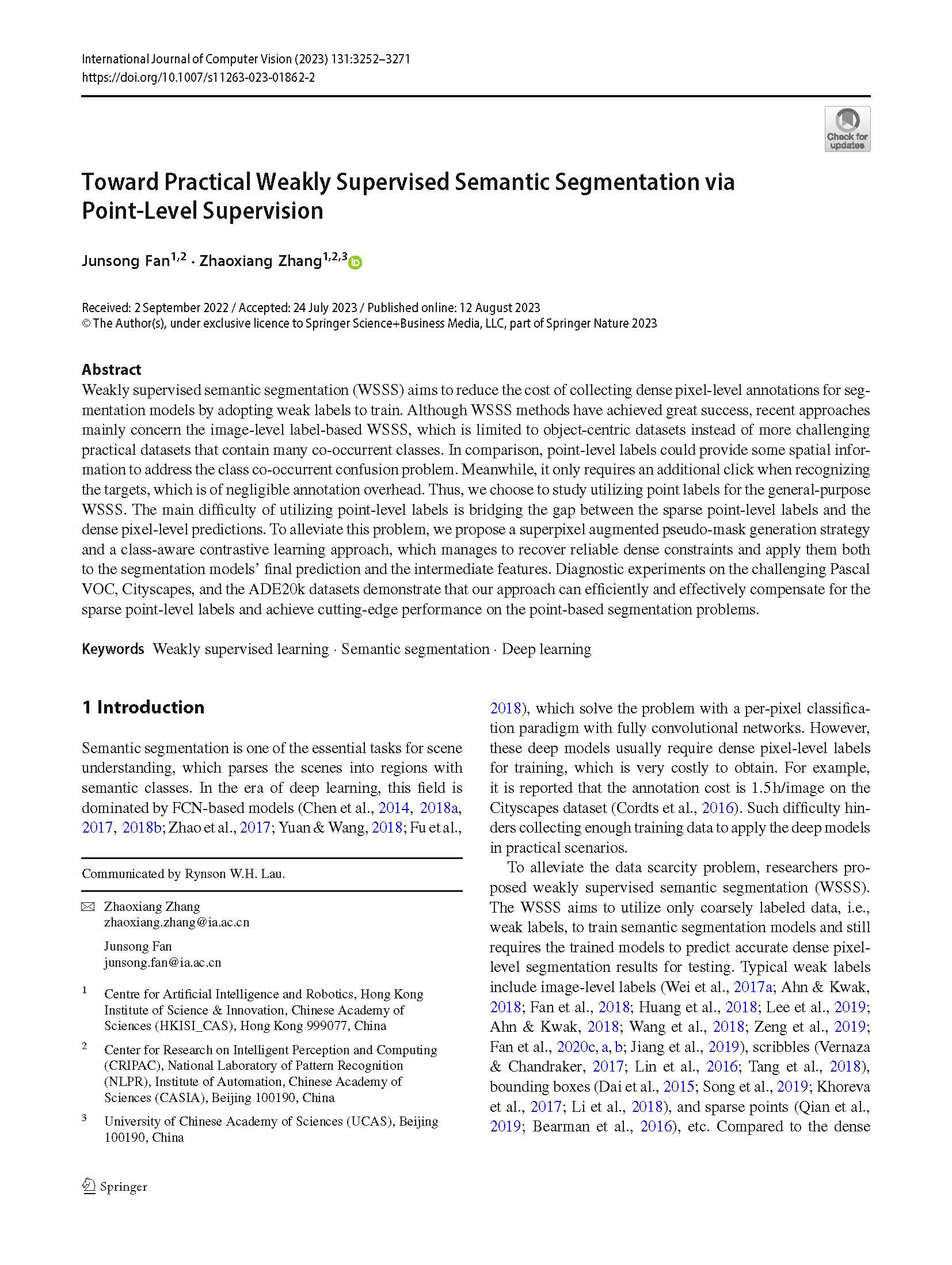Toward Practical Weakly Supervised Semantic Segmentation via Point-Level Supervision
Article Ecrit par: Zhang, Zhaoxiang ; Fan, Junsong ;
Résumé: Weakly supervised semantic segmentation (WSSS) aims to reduce the cost of collecting dense pixel-level annotations for segmentation models by adopting weak labels to train. Although WSSS methods have achieved great success, recent approaches mainly concern the image-level label-based WSSS, which is limited to object-centric datasets instead of more challenging practical datasets that contain many co-occurrent classes. In comparison, point-level labels could provide some spatial information to address the class co-occurrent confusion problem. Meanwhile, it only requires an additional click when recognizing the targets, which is of negligible annotation overhead. Thus, we choose to study utilizing point labels for the general-purpose WSSS. The main difficulty of utilizing point-level labels is bridging the gap between the sparse point-level labels and the dense pixel-level predictions. To alleviate this problem, we propose a superpixel augmented pseudo-mask generation strategy and a class-aware contrastive learning approach, which manages to recover reliable dense constraints and apply them both to the segmentation models' final prediction and the intermediate features. Diagnostic experiments on the challenging Pascal VOC, Cityscapes, and the ADE20k datasets demonstrate that our approach can efficiently and effectively compensate for the sparse point-level labels and achieve cutting-edge performance on the point-based segmentation problems.
Langue:
Anglais
Thème
Informatique
Mots clés:
Deep learning
Weakly supervised learning
Semantic segmentation

